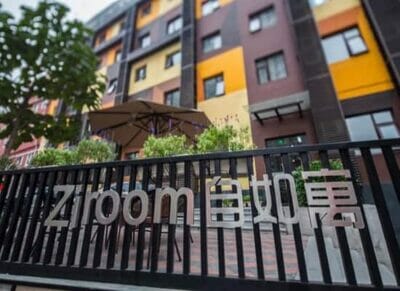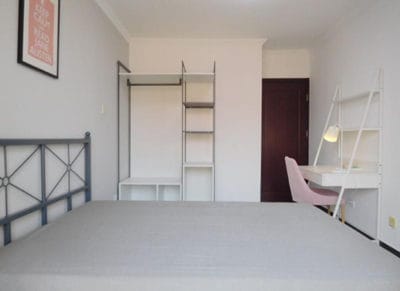
Ziroom‘s co-living model delivers serviced apartment amenities in shared flats
Venture capital-backed rental apartment provider Ziroom has pledged to roll out 80,000 units of rental housing in Beijing within the next three months, while agreeing to maintain current prices for the homes, after the capital’s housing authority this month that it would clamp down on rental prices following complaints from the public.
Ziroom, which raised RMB 4 billion in financing from Warburg Pincus, Sequoia Capital China, and mainland tech giant Tencent in January was among ten major rental operators that promised to provide a total of 120,000 units of rental homes in Beijing within the coming three months in response to pressure from the Beijing Municipal Commission of Housing and Urban-rural Development earlier this month.
The rental housing businesses were compelled to defend themselves after Chinese netizens accused Ziroom and other multifamily operators of gouging customers and driving up housing prices in the nation’s capital at a time when president Xi Jinping has made ensuring housing affordability a top policy priority.
Rental Home Operators Accused of Ramping Up Prices
This latest incident was sparked by a post from a Beijing homeowner surnamed Chen who recounted in the mainland online forum newsmth.net how Ziroom and another operator had engaged in a bidding war for the right to lease out his 120-square-metre home in Tiantonghua, a suburban area in north Beijing. Chen, who said he had expected to receive RMB 7500 per month for the jumbo-sized apartment said that after competitive bidding by Ziroom and Danke Apartment he was finally able to lease the home to Danke for RMB 10,800 per month.
The post drew heated comments online, with a number of users citing similar experience and netizens speculating that rental apartment providers are using their venture capital funding to drive up leasing rates for homes in Beijing.
Ziroom, which is a unit of mainland residential brokerage Lianjia, raised a reported RMB 4 billion ($621 million) ]from Warburg Pincus, Sequoia China and Tencent in January this year in a series A financing round that valued the startup at RMB 20 billion (US$3 billion).
The company uses its venture capital funding to take out long-term leases of existing homes from individual landlords, which it then decorates and subleases to tenants. The company is one of a number of apartment rental platforms that have sprung up as China’s multifamily sector grows exponentially thanks to a growing professional class and government support of developing an alternative to increasingly unaffordable home ownership.
Ziroom’s service intensive co-living model caters to young professionals able to pay more for a single room in a shared home that comes with weekly cleaning, wifi and other serviced apartment amenities.
Ziroom Refutes Gouging Claims

Ziroom’s spaces show that cutting edge style
In response to the controversy, Ziroom published a statement denying any role in rising rental prices in Beijing. “The rental apartment businesses do not have the ability to affect the price of the entire rental market,” the startup firm argued in its rebuttal, “…the total number of rental apartments currently only accounts for less than five percent of the entire rental market.”
Conrad Tsang, founder and chairman of Hong Kong-based investment firm Strategic Year Holdings Ltd., told Mingtiandi the rising cost of leasing a Beijing home was likely linked to other factors. “The increasing rental price is supported by solid demand for residential houses,” Tsang said, “my apartment in Beijing saw the rent increase by eight to nine percent every year. That’s the normal growth speed in Beijing.”
According to Ziroom, the company’s rental rates increased by 4.8 percent in 2017 and 7.5 percent in 2016, which is much lower than the market average increase in Beijing of around nine percent in 2017 and 15.2 percent in 2016.
Beijing Makes Rental Housing Providers Pledge to Save the Market
In an attempt to resolve the conflicts around rental housing costs, Beijing’s real estate regulators reportedly laid out a set of three guidelines for rental housing operators to follow.
First, citing a need to reduce competition for potential rental stock, the government forbade the use of funding from banks and other institutions to take long-term leases from homeowners. Second, the guidelines proscribed against offering above-market prices to secure leases for new stock, and third, the rental housing operators were warned not to incentivise landlords to break existing leases with other operators. Ziroom in its statement said that the company would abide by all of the new guidelines, in addition to releasing more units and holding down rental prices.
In the Report on Government Work published by the State Council in April of this year, the government set out the development of the rental housing market as one of the main objectives for the central and local authorities in 2018.
President Xi Jinping has pointed out on several occasions that the government should reduce the speculative nature of the property market and needs to ensure affordable shelter for those who can not afford to buy a house in urban centers like Beijing and Shanghai.
Leave a Reply